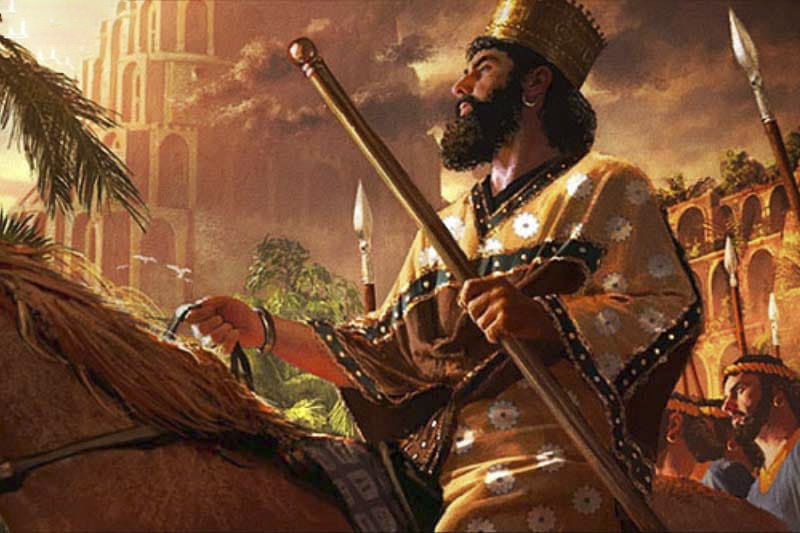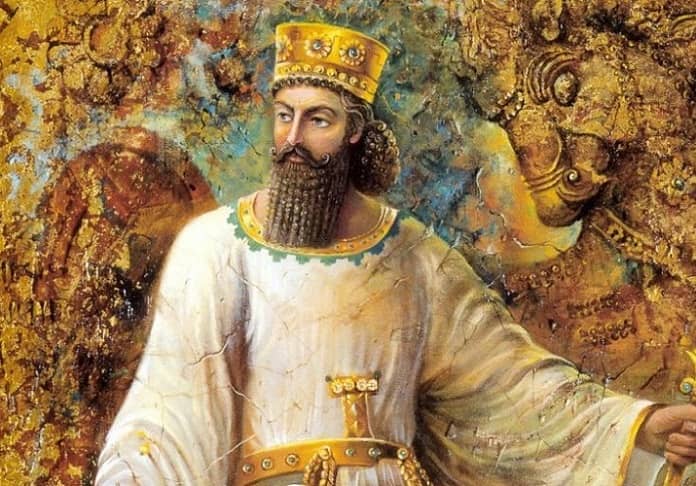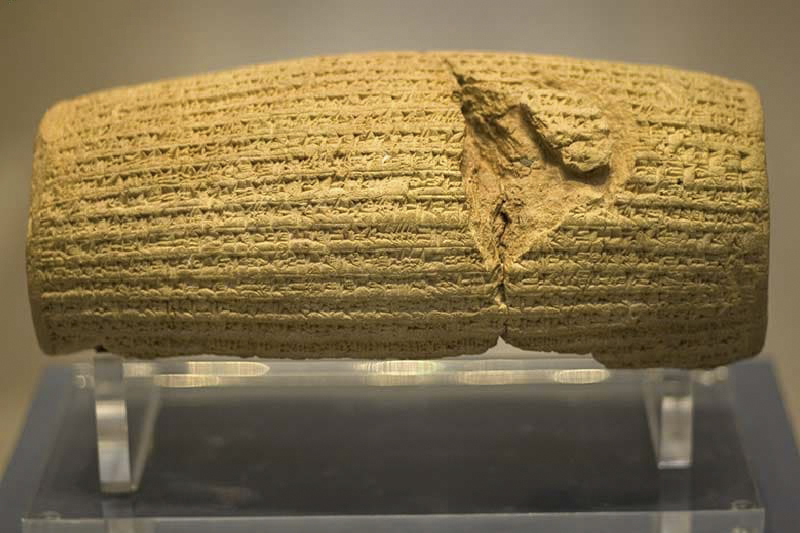Cyrus the Great, the honorable monarch of ancient Persia, is so much admired and appreciated by Iranian people that Iranian people celebrate October 29th every year as Cyrus the Great day, a day when Cyrus conquered Babylonian Empire and a day that heralded the burgeoning state of the Persian Empire.
Cyrus the Great was the founder of the Achaemenid Empire, the first Persian Empire that stretched from the Mediterranean Sea to the Indus River. The empire established by Cyrus was the largest empire that had ever existed by his time and was further extended by his successors in the following years. He reigned over his empire for about thirty years, a period in which he managed to conquer and rule over many nations through tolerance and democracy, and thus become world-known for his policy in dealing with and ruling over the defeated nations. He was considered as an ideal monarch at his time, a fame that continued to the present time; he is so honored and respected that his tomb is one of the most-visited spots by Iranians.


There are not many sources about his birth and childhood, and the existing ones have legendary touches. Cyrus the Great is estimated to have been born between 590 and 580 BC, from a long line of ruling chiefs. Two famous historians of the ancient time, Herodotus and Xenophon, described and even idealized this Achaemenid king in their accounts, some descriptions are even filled with traces of legends . According to mythological accounts of these historians, Cyrus was born from the Median princess named Mandane and Persian king named Cambyses; The Median king, Astyages, allowed his daughter to marry the son of his vassal in Persis that is believed to be the preset Fars Province. Following the Cyrus birth, Astyages seems to have had a dream that his grandson would usurp his throne, a dream which happened to come true in the future when Cyrus revolted against his matriarchal grandfather and overturned the Median dynasty and founded the Achaemenid dynasty that heralded a flourishing period for the Persian Empire.
The expansion of the Persian Empire
After having descended the throne, Cyrus first needed to consolidate his authority over the tribes under his rule on the plateau of Iran before expanding his territory to the west and the east. After putting down the riots in Iran, Cyrus defeated Croesus, the king of Lydia that was a wealthy country in ancient times. Having heard that Cyrus overturned the Median king, who was in alliance with Lydia, the king of Lydia embarked to attack Persia, a decision which led to the defeat of Croesus and resulted in Lydia becoming subject to Persia as a Satrap; this event was a major step in the advent of the Persian Empire. After conquering Lydia, Cyrus managed to subjugate some nations on the east of Persian Empire.
Following these conquests, Cyrus deployed his troops to conquer Babylon, a great kingdom; he managed to defeat Babylon without any bloodshed and interestingly without any battle due to the strategic approaches Cyrus adopted, so his military genius resulted in the downfall of a glorious civilization and distinguished Cyrus from the other cruel kings who did not care about humanity. He commanded his troops to show no atrocity to the subjugated Babylonians; in addition, he permitted all the Jewish people who inhabited Babylon to return to their homeland. A group of Jewish people settled back in the ruins of Jerusalem and started to rebuild the temple that the former Babylonian king had destroyed; this rebuilding of Jewish temple marked the beginning of a new era in Jewish history and resulted in the name of Cyrus being mentioned 23 times in Bible for liberating Jews from captivity in Babylon. He was recognized as a tolerant and ideal monarch who supported local customs and even sacrificed to local gods and deities, an unprecedented approach that has never been adopted by former kings.
The other measure adopted by Cyrus after conquering Babylon was to treat all people fairly while the subjugated nation customarily anticipated slaughter and plunder. He issued a royal decree known as “Cyrus Cylinder” in which he expunged all ethnic and racial discrimination and announced that people are free to choose their religion and their living place. This Cylindrical inscription written in cuneiform is recognized as the first human rights declaration in which Cyrus denounces the impious king of Babylon; furthermore, he declares his strategic policy in ruling over people. On this clay cylinder, he declares that all slaves are free, every one has the right to choose their religion and promoted the belief in racial equality. Cyrus Cylinder is now being kept in British Museum due to its importance.












